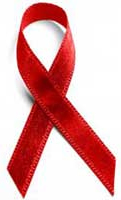
The final phase three tests on cellulose sulfate – which works like a spermicide that is applied by women prior to intercourse – revealed “a higher number of HIV infections in the active compared with the placebo group,” the WHO said in a statement.
“This is a disappointing and unexpected setback in the search for a safe and effective microbicide that can be used by women to protect themselves against infection,” it continued.
The WHO said it had no explanation for the higher rate of HIV/AIDS transmission with the cellulose sulfate gel adding it was important to discover why this had occurred.
Three other compounds — Carraguard, BufferGel and PRO 2000 – are still being assessed in large-scale phase three trials in Africa, with results expected between the end of 2007 and 2009, the WHO said.
The UN health agency observes the search for microbicide that can be used independently by women to protect themselves against HIV/AIDS as a matter of urgency.
The cellulose sulfate gel consists of a cellulose microbicide, a substance designed to reduce the infectivity of viruses and bacteria that was given to sexually active women at greater risk of contracting HIV said WHO study coordinator Tim Farley.
Around 30 women out of 1,300 who participated in the trials on cellulose sulfate in South Africa, India, Uganda and Benin have been infected since 2005. A similar test in Nigeria was also stopped, Farley said.
The gel, produced by Canadian company Polydex Pharmaceuticals, had previously been tested for several years on animals and volunteers in the United States and Europe.
In 1997 a similar treatment was stopped after it caused vaginal lesions, rendering women more prone to infection.
